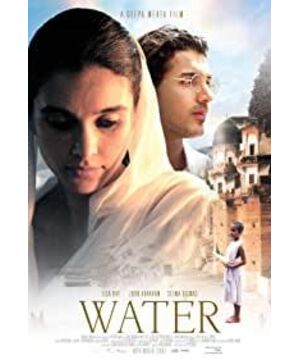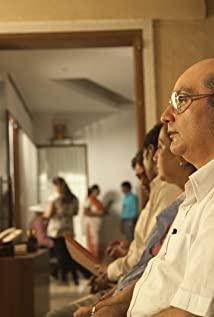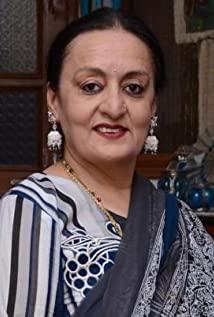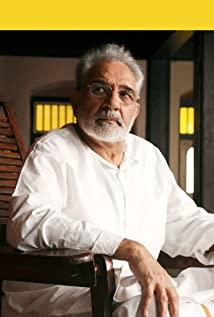The Chinese translation of the play , it is hard not to recall the recent work Volver by the Spanish genius Pedro Almodóvar. After watching the movie, I can't see a very important connection between them. It doesn't matter, the important thing is that this is a good show, that's enough.
Oscar nomination for Best Foreign Language Film, Toronto International Film Festival Opening Film, Bangkok International Film Festival Best Film... Aside from these halos, what kind of drama is "Floating Flowers on Still Water"?
The story exposes the absurdity that exists in India, but not so well-known: women are still in a very low position, living their whole lives in the shadow of men. Chuyia, a little girl around seven years old, just married an old man for no reason. After that, the old man died of illness, and the little sister became a widow, and she was going to live in the widow's house for the rest of her life. In the house, there are widows, old and young, each with their own stories and orientations. The play revolves around one of the young and beautiful widows, Kalyani.
Although the movie scene is beautiful, it looks like a small Indian village written by Anita Desai, which is leisurely and peaceful, with light clouds and wind. But seeing the Indian widow portrayed in the movie makes people no longer in the mood to appreciate the scenery. Many of them, especially the older generation, are unfortunate, yet ignorant. They are oppressed and even submissive. The words "sorrow for their misfortune, but do not fight for their anger" can very well sum up my feelings when I saw what happened to these women.
It's not that no one resists: for example, Chuyia, who is full of innocence, is already extremely disgusted with this perverted widow's house; young Kalyani also met a young lawyer and after a taste of love, he decided to turn his back on the entire conservative society and go upstream , determined to resist unreasonable traditions. Of course, the resistance was not small, but it was unexpected that the most depressing thing happened at this time, and it made people feel even more angry about such a society.
Revealing such a fact, it is no wonder that the director Deepa Mehta encountered many obstacles in the filming and release of this film. Fortunately, Deepa Mehta has been naturalized in Canada, and it is much more secure to criticize her home country. At this point, Hu Er remembered Ha Jin, a Chinese-American writer who borrowed from the United States. He read an interview with him a few years ago in "Inscriptions on Literary Life". He said: "A country can exile a person, but a real individual can also exile a person. The country was banished from my mind. I just treated China as a subject.” In fact, didn’t Deepa Mehta “exiled” India and then “treated it as a subject”? It seems very indifferent to say so, but seeing such an unbearable reality in his own country, the artist must have redoubled calmness in order to properly expose the facts to the world.
Legend has it that the Ganges River in India is holy. The floating flowers on the water still hide an indescribable darkness under its beautiful appearance. What kind of society is it carrying? What's your life like? Flowers are drifting away, worrying is not moving, the world is not as colorful as we imagined.
http://www.yauyeah.com/?p=158
View more about Water reviews











